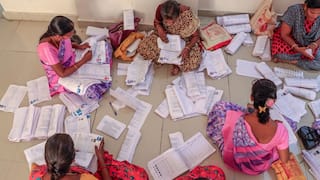Amid Surging Electricity Demand, Assam Govt Mulls Power Cuts, Supply From Open Sources
With the state experiencing unexpectedly high power demand, the Assam government said it was considering power cuts or purchasing additional power from open sources.

Amid an unexpected surge in power demand, the Assam government is considering power cuts or procuring additional electricity from open sources, which could result in an increase in electricity tariffs. During a recent press conference on Wednesday (September 7), Chief Minister Himanta Biswa Sarma revealed that peak-hour power demand in the state had increased significantly this year. Last year, demand was 1,800 megawatts (MW), but this year it has risen to 2,500 MW.
Live: Addressing press conference at CM Block, Assam Secretariat Complex, Dispur https://t.co/jxsIQ9Dnd2
— Himanta Biswa Sarma (@himantabiswa) September 6, 2023
"We currently have an availability of 1,650 MW from our own sources and pre-existing agreements. We can bridge a shortage of 100-200 MW by procuring power from open sources at a rate of Rs 10 per unit. However, if we need to cover the shortfall experienced over the next three to four months by purchasing power from open sources, we may be compelled to raise the power tariff by Rs 1 per unit," Sarma stated.
Sarma explained that the decision on whether to implement power cuts or procure additional power from open sources would be determined during the Cabinet meeting scheduled for September 8.
"Whether we opt for power cuts or buy power from open source, the decision will be taken at the Cabinet meeting on September 8," he said.
The Chief Minister attributed the sustained and substantial increase in power demand to unanticipated factors and pledged to investigate the underlying reasons. These factors include heightened electricity supply to railways due to track electrification and increased industrial activities.
Assam relies heavily on purchasing power at a rate of Rs 5 per unit, as its own generation capacity is limited to 250 MW. Sarma acknowledged that while the state had entered agreements for power supply from various sources, the lengthy gestation period for projects meant that it would take time to fulfill the growing demand through these existing arrangements.
"We anticipate that the situation will gradually improve starting next year," Sarma added further.






































